
|
|
Abstract: Passing mentions of the Babis. Notes: |
Six Months in Persia
by Edward Stack
pages vol. I: 199, 282-3; vol. II: 29-31London: Sampson Low, Marston, Searle, & Rivington, 1882
1. Text, Volume 1
[page 199]... We talked of the assassination of the Emperor of Russia — an astounding piece of news which I heard here for the first time. "There are Nihilists in all countries," said the Vazir; "we have our Nihilists in Persia, whom we call Bábis."
[page 282]
... As for the village people, they are Bábís, [footnote: The Báb or Gate was a native of Nirez who preached a communistic and mystical religion that had much in it to attract the free-thinking Persian mind. He was put to death in 1850.]
[page 283]
and have community of wives and daughters (zan o dukhtar i hamdigar hilál midánand); of which custom my companion advised me to take advantage, as a remedy against loneliness during the rest of my stay in Manshar. I hastened to turn the conversation to less questionable subjects.
2. Text, Volume 2
[page 29]... These little failings are of small importance; but the execution, or rather murder, of the two Bábi merchants three years ago has left a stain on the Prince's character which not even the consideration of his comparative youth and inexperience can wholly remove. They were
[page 30]
two respectable merchants, against whom the Imam-i-Juma, or chief ecclesiastical authority of Isfahan, for pecuniary reasons, had conceived a grudge. That they were in secret Bábis, does not seem to be denied; but there are thousands of Bábis in the Shah's dominions, and nobody had ever alleged that these two men were not quiet and loyal subjects. They Imam-i-Juma, however, raised the fanatic spirit among the mullas and their adherents, while respectable Isfahan looked on helplessly. The two unfortunate men were brought bound before the Prince, in the presence of the chief merchants convoked for that purpose. M. Collignon was himself a witness of this scene. He rose at once and grasped the captives by the hand, addressing them as he had been accustomed to do in the days of their liberty. They wept, and asked the other merchants what dishonourable thing they had done that their old friends and brother-traders should sit thus aloof. One by one the merchants, moved to shame, imitated M. Collignon's example, and before the meeting broke up the Prince had promised that no harm should happen to the men. But the mullas returned, talked the Prince over, and their victims were put to death. It is but fair to the Zill-us-Sultan to
[page 31]
add that he was then young in his government, that threats had been used of setting Isfahan in rebellion, and that he yielded much against his will. Nobody believes that such a crime could be perpetrated now. The Imam i Juma fell out of favour. He and his victims have been judged by this time. In Gulpaigan I heard the news of his death.
3. Images, Volume 1
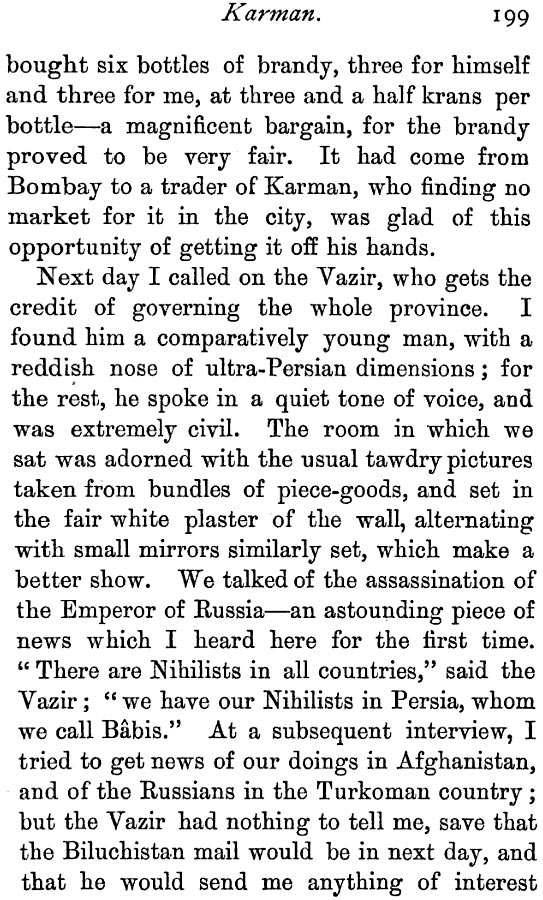
. . .
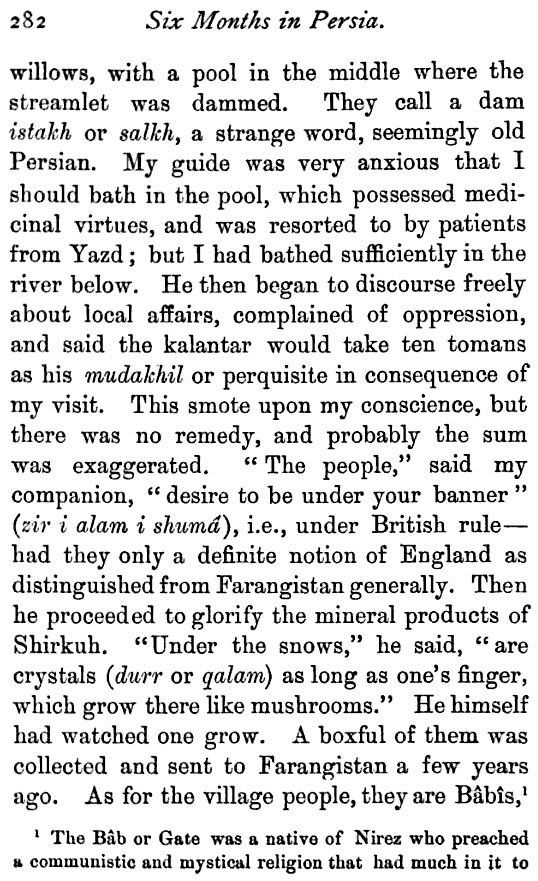
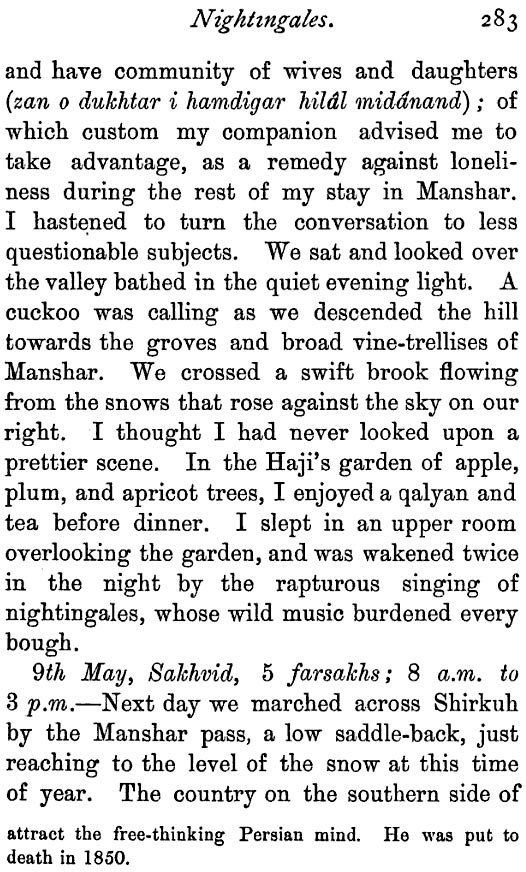
4. Images, Volume 2
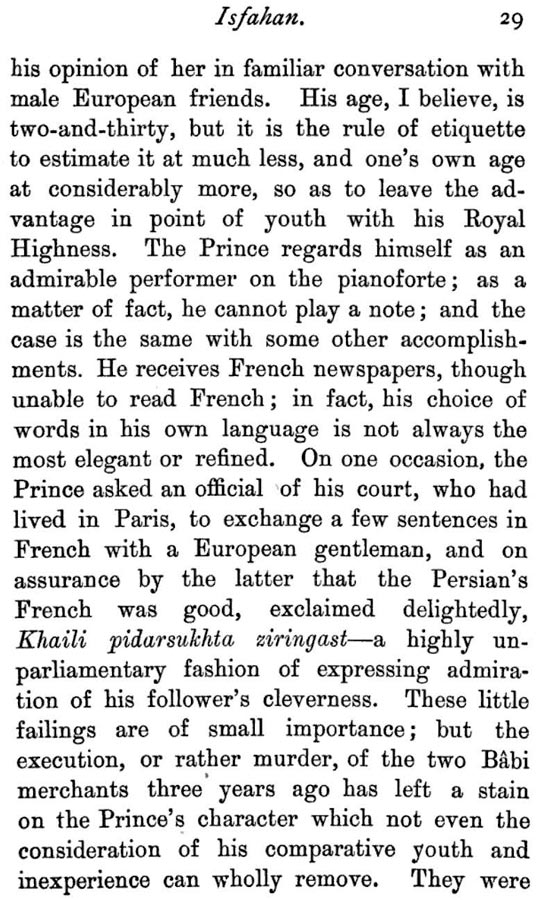
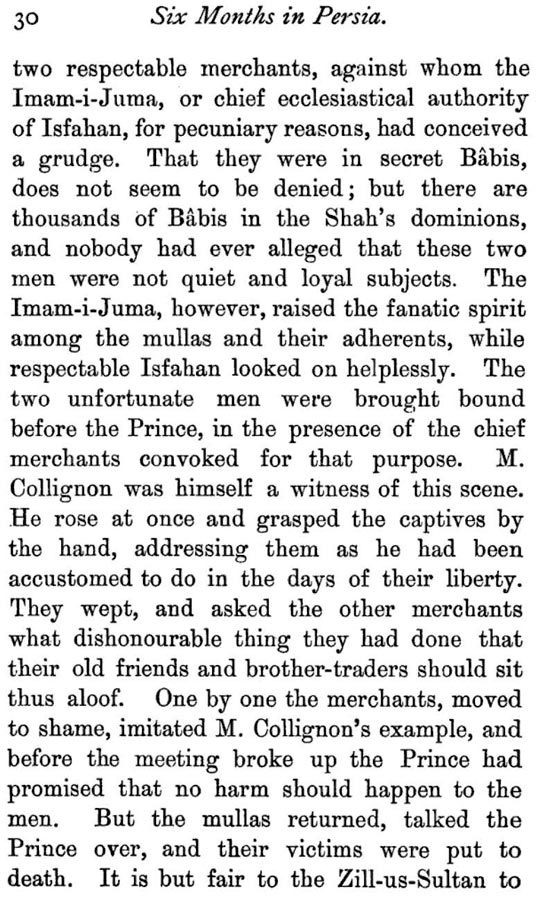
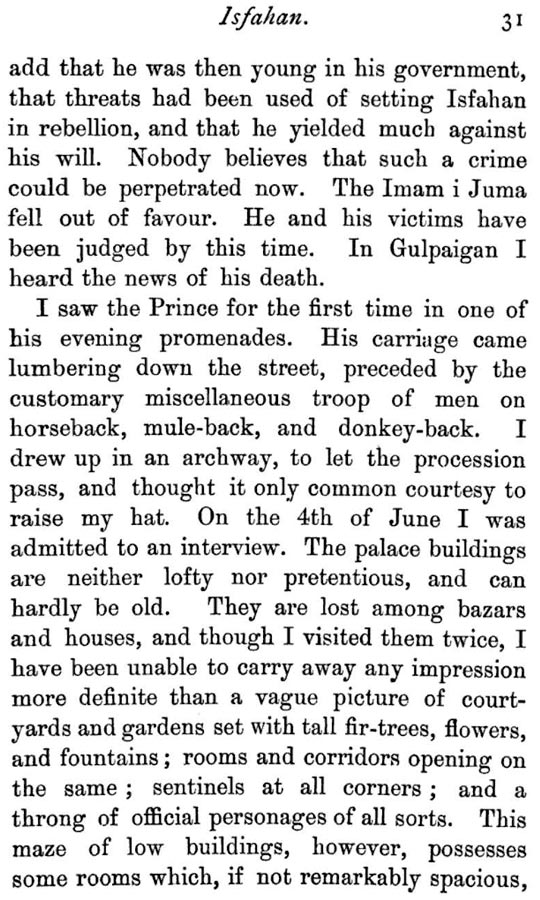
|
|